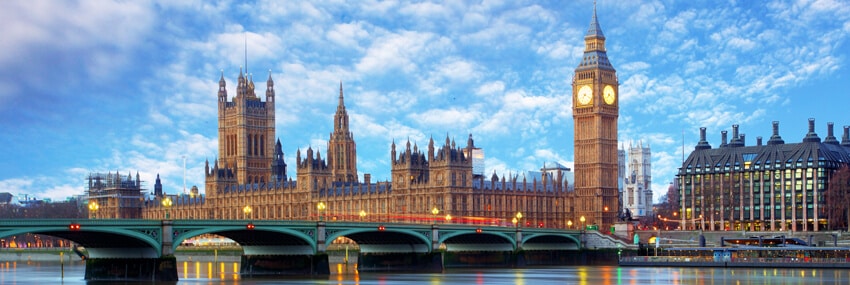Updated 24 September
Just under four months ago – though you could be forgiven for thinking it was longer – the Chancellor used his Spring Budget 2020 speech to announce the government’s first series of measures for supporting people and businesses through coronavirus. Today Rishi Sunak used his Summer Economic Update to announce the latest support measures.
Seeking something more concise than ‘Summer Economic Update’, it was branded as ‘A Plan for Jobs’ with a focus on supporting, creating and protecting UK employment.
Here are some of the key measures announced by the Chancellor, and their implications for taxpayers.
Stamp duty
The ‘nil rate’ band of Stamp Duty Land Tax (‘SDLT’) on residential property in England and Northern Ireland is increased from £125,000 to £500,000. It takes effect immediately (rumours that it would apply only from the autumn and so paralyse the market until then are happily unfounded) and lasts until 31 March 2021.
It’s not limited to first-time buyers or even to individuals buying for their own occupation: it applies equally to purchases by companies and buy-to-lets (though in each case the existing 3% surcharge applies, and the nil rate band doesn’t apply at all to any company purchases costing over £500,000 if they are caught by the penal 15% rate).
Nearly 9 out of 10 people buying a home will pay no SDLT at all as a result.
It might be cynical to suggest that the main effect may be to boost the value of properties under the nil rate threshold rather than to save money for purchasers, but sadly that seems, anecdotally, to have been the effect of previous limited-term SDLT reductions.
VAT
The hospitality sector including restaurants, bars, pubs, cafes etc sees a reduction in VAT to 5% from 15 July until 12 January 2021 – later extended until 31 March 2021 under the Winter Economy Plan. This also applies to accommodation (where it bears VAT at all, of course) and admission to ‘attractions’ throughout the UK.
It’s not clear whether this is intended to boost demand by reducing the cost to consumers, or as a means of widening hard-pressed traders’ margins; it will be interesting to see how this works out.
There is also a snappily-named ‘Eat Out to Help Out’ scheme under which participating food establishments will be fully funded by the Government to give eat-in diners a 50% discount of up to £10 per head on their meal (including non-alcoholic drinks but not alcoholic ones) throughout August (but only, oddly, Mondays to Wednesdays). It’s not yet clear what, if any, additional criteria will be applied to establishments seeking to participate.
Green Homes Grant
Funding at least two-thirds of the cost of making homes more energy efficient, up to £5,000 per household (and up to 100% / £10,000 for those on lowest incomes).
More widely, there are a number of measures aimed at directly creating or retaining jobs:
Apprentices, trainees and work placements
Employers hiring new apprentices between 1 August 2020 and 31 January 2021 will get a grant of £1,500 for each apprentice, increased to £2,000 if the apprentice is aged under 25. This is on top of the existing £1,000 provided for new 16-18 year-old apprentices, and those aged under 25 with an Education, Health and Care Plan – where that applies.
£2 billion is to be made available to fund a Kickstart Scheme. This will provide ‘high quality’ six-month work placements aimed at those aged 16-24 who are on Universal Credit and are deemed to be at risk of long-term unemployment. Funding available for each job will cover 100% of the relevant National Minimum Wage for 25 hours a week, plus the associated employer National Insurance contributions and employer minimum automatic enrolment contributions. In addition, employers will be funded to provide trainees with work experience, at a rate of £1,000 per trainee.
Job Retention Bonus
To try to prevent (or at least delay) Coronavirus Job Retention Scheme ‘furloughing’ becoming ‘redundancy’, the Government will pay employers a one-off bonus of £1,000 for every furloughed employee who is continuously employed through to the end of January 2021 at earnings above the Lower Earnings Limit of £520 per month. This might be seen as a bit tough on businesses that have striven manfully and successfully to avoid furloughing anyone at all: but there are bound to be rough edges on any scheme of this kind.
Payments will be made from February 2021 with further detail of the scheme being announced by the end of July.
We assume that all of these employment incentive payments will be subject to tax in the usual way.
Full details of all these proposals (as well as further details of proposals on construction and infrastructure expenditure previously announced in Mr Sunak’s speech of 30 June) may be found from HM Treasury here.
If you would like specific guidance, we’d be pleased to help: please get in touch with your usual BKL contact or use our enquiry form.
If you’d like to see the outcome of our survey exploring the impact of coronavirus on our clients and contacts, the results are available here.


